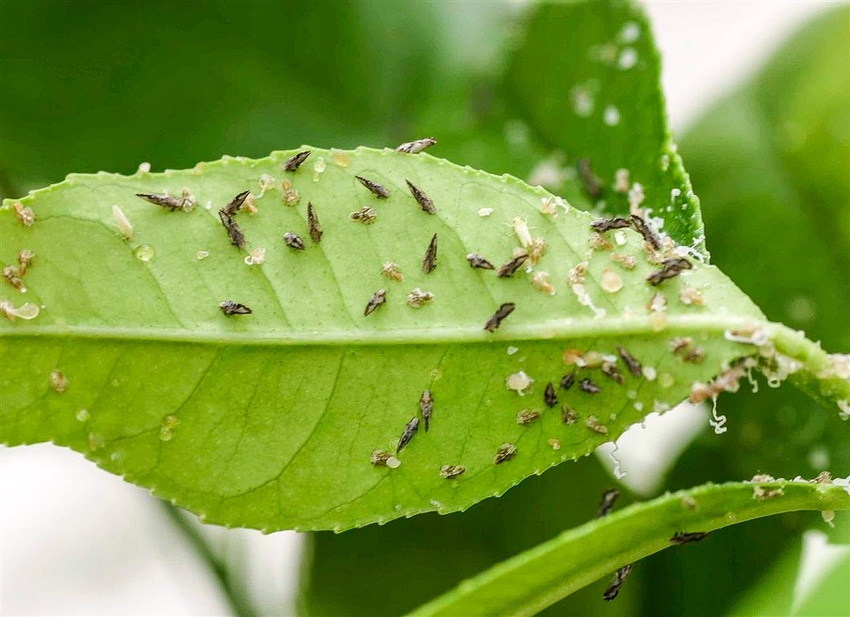April 9, 2014

California officials placed a portion of southern San Luis Obispo County under quarantine for the Asian citrus psyllid (ACP) following the detection of one psyllid in the Arroyo Grande area. The 84-square-mile area encompasses Arroyo Grande, a town on California’s central coast.
A link to the quarantine map may be found here: www.cdfa.ca.gov/plant/go/acp-qmaps
The quarantine prohibits the movement of citrus and curry tree nursery stock out of the quarantine area and requires that all citrus fruit be cleaned of leaves and stems prior to moving out of the area. An exception may be made for nursery stock and budwood grown in USDA-approved structures designed to keep ACP out. Residents with backyard citrus trees in the quarantine area are asked not to transport fruit, citrus or curry leaves, or potted trees from the quarantine area.
In addition to San Luis Obispo County, ACP quarantines are now in place in Imperial, Los Angeles, Orange, Riverside, San Bernardino, San Diego, Santa Barbara, Ventura and portions of Fresno, Kern and Tulare Counties. A total of more than 46,420 square miles are under quarantine.
The ACP is an invasive species of grave concern because it can carry the disease Huanglongbing (HLB), also known as citrus greening. All citrus and closely related species, such as curry trees, are susceptible hosts for both the insect and the disease. There is no cure once a tree becomes infected. The diseased tree will decline in health until it dies. HLB has been detected just once in California – in 2012 on a single residential property in Hacienda Heights, Los Angeles County. This plant disease does not affect human health.
Residents in the area who think they may have seen the Asian citrus psyllid are urged to call CDFA’s Pest Hotline at 1-800-491-1899. For more information on the Asian citrus psyllid and Huanglongbing disease please visit: www.cdfa.ca.gov/go/acp
Virus slams 2013 California tomato yields
Herbicide-resistant weeds a growing problem
Farm bill cotton provisions draw mixed reviews from West
About the Author(s)
You May Also Like






